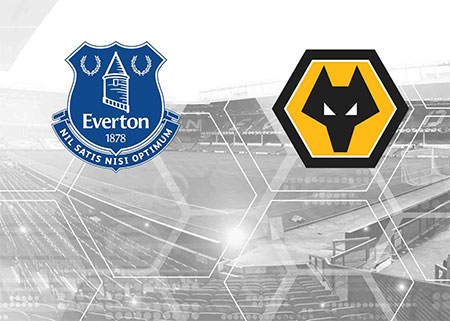Book Excerpt
A Quiff Like Elvis
Chapter 3 AFTER the heartache in Milan, Everton went close to retaining the championship. In March 1964 the Blues were top of the league, with just five games to go. But in the next four games we picked up just one point and finished third, five points behind Liverpool, who won their first title since 1947. It meant the Blues and Reds had won six titles each. We qualified for the Inter Cities Fairs Cup, along with Manchester United who had finished second. Everton were drawn to play an Oslo XI that would draw on players from several clubs in the Norwegian capital and represent the city in accordance with the original ethos of the competition. But one of those clubs, Skeid Oslo, had entered the Cup Winners Cup and another, FK Lyn, the European Cup. If players from those clubs were also required for two games in the Fairs Cup, arrangements could get complicated. As a result, Valerengen were asked to represent Norway in the Fairs Cup. Before our flight to Oslo there was the little matter of a derby match. We went to Anfield on the back of five league games without a win. Blues supporters were understandably a little pessimistic. It turned out to be one of the greatest derbies ever for Evertonians. We thrashed them 4-0 with goals from Colin Harvey, Johnny Morrissey, Derek Temple and Fred Pickering. "Big Fred" was establishing himself as a firm favourite with Blues fans. He had been signed in March from Blackburn for �85,000, scored a hat-trick on his debut and a total of nine goals in the last nine games of the season. His goal at Anfield was his eighth in his first nine games of the new season � 17 goals in his first 18 league games, and he had a quiff like Elvis. Notably though, after July 1964 � when we signed Ray Wilson from Huddersfield in exchange for �35,000 and Mick Meagan � the rate of signings slowed considerably. During the rest of the Sixties, Everton only made three big signings � �110,000 for Alan Ball in 1966 and �80,000 each for Ernie Hunt and Howard Kendall in 1967 � until the last month of the decade when we bought Keith Newton for �80,000. The game in Oslo was Pickering's first taste of European club football. Valerengen had been formed in 1913, but had never won the Norwegian championship, even though clubs from northern Norway were excluded, due to the problems at that time of travelling long distances in a mountainous country. It was to be another seven years or so before there was a fully national league. There was a crowd of 18,000 in Oslo to see the famous English side. Everton fielded the team that had conquered Anfield. In the opening minutes Pickering hit the post but the game was scoreless for the first quarter. When a goal was scored, it came from Valerengen after Brian Labone fouled Leif Eriksen in the 27th minute and the Swedish referee pointed to the penalty spot. Local hero Bruno Larsen converted. Pickering soon put Everton level and at half-time it was 1-1. But just a minute into the second half the home side took the lead again following a mistake by Labone which allowed Larsen to pass to Eriksen who fired home from 10 yards out. A shock appeared to be on the cards as the Norwegians battled manfully. But in the 70th minute Alex Scott crossed and Pickering headed an equaliser. A 2-2 draw would have been sufficient, if not satisfactory, for Everton to take back to Goodison for the second leg. But the superior fitness of the full-timers came into play and Everton scored three in the last 12 minutes. Colin Harvey latched on to a loose ball in the 78th minute and powered it home to put Everton ahead for the first time in the game. Six minutes later, Derek Temple added another. In the dying seconds Scott made it 5-2. The following Saturday, Big Fred netted twice as Everton won 5-3 at Birmingham. It was a good week's work for the Blues � 14 goals in three away wins, with Pickering scoring five. Evertonians were happy and the Number One single was the Herman's Hermits feel-good song I'm Into Something Good. The Inter Cities Fairs Cup, later renamed the UEFA Cup, was winning increasing respect as a competition among Europe's leading clubs, probably because it was increasingly becoming a competition where entry was based on merit. This was the first season that England's entrants were the teams that had finished immediately behind the champions. In 1962, second-placed Burnley had been denied entry to the Fairs Cup because it was based in a town, not a city. Nor did it host a large trade fair... ....What made the rejection of Burnley more bizarre was they had played in the European Cup in 1960 after winning the League. Perhaps it did not help their case that the Burnley manager Harry Potts, who scored 16 goals in 63 games for Everton in the early 1950s, was so angry over refereeing decisions in the second leg at Reims that he ran onto the pitch to protest, only to be marched off by gendarmes and made to sit in the stand. Mike Owen [Mike Owen will be selling copies of his brilliant 260-page masterpiece, Der Ball ist Rund, Everton in Europe 1962-2005, price �7.99, outside the St Luke's church before home games. This excellent book is also available in many Merseyside bookshops. For mail order, go to the Ruleteros Society shop at www.ruleteros.com � The Editor]
©2005 ToffeeWeb |











